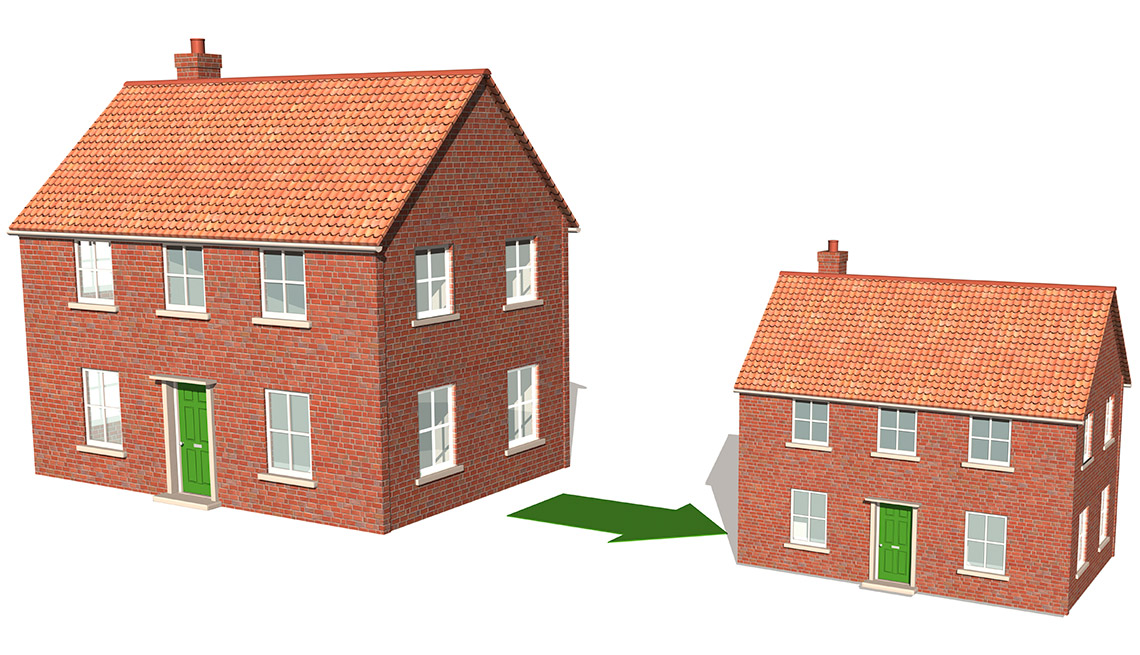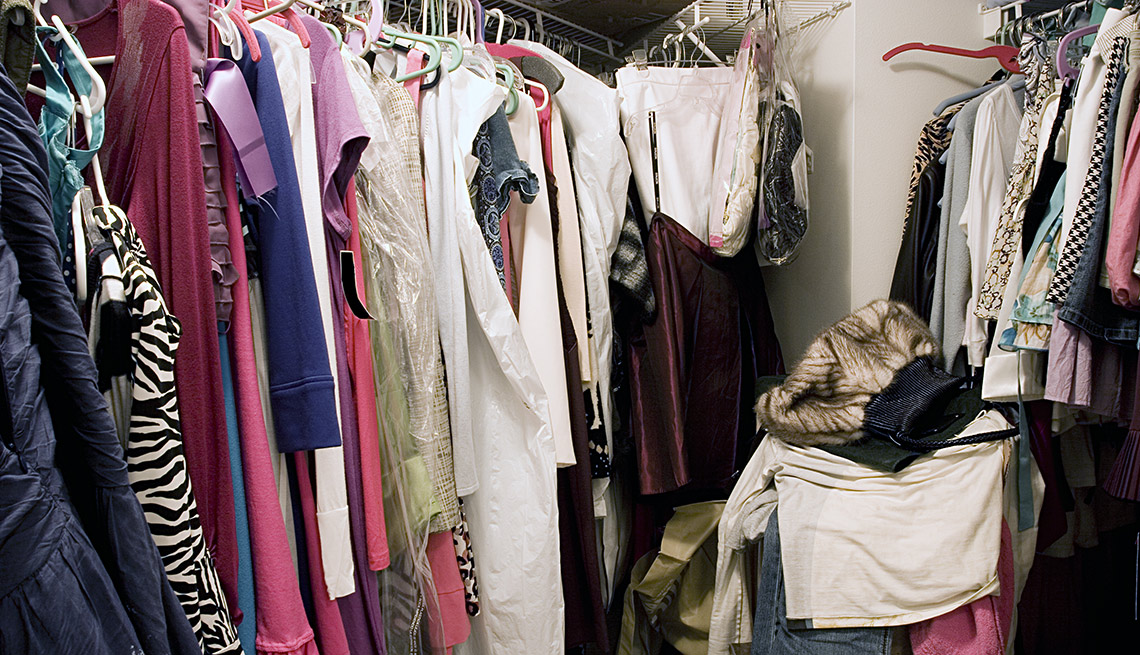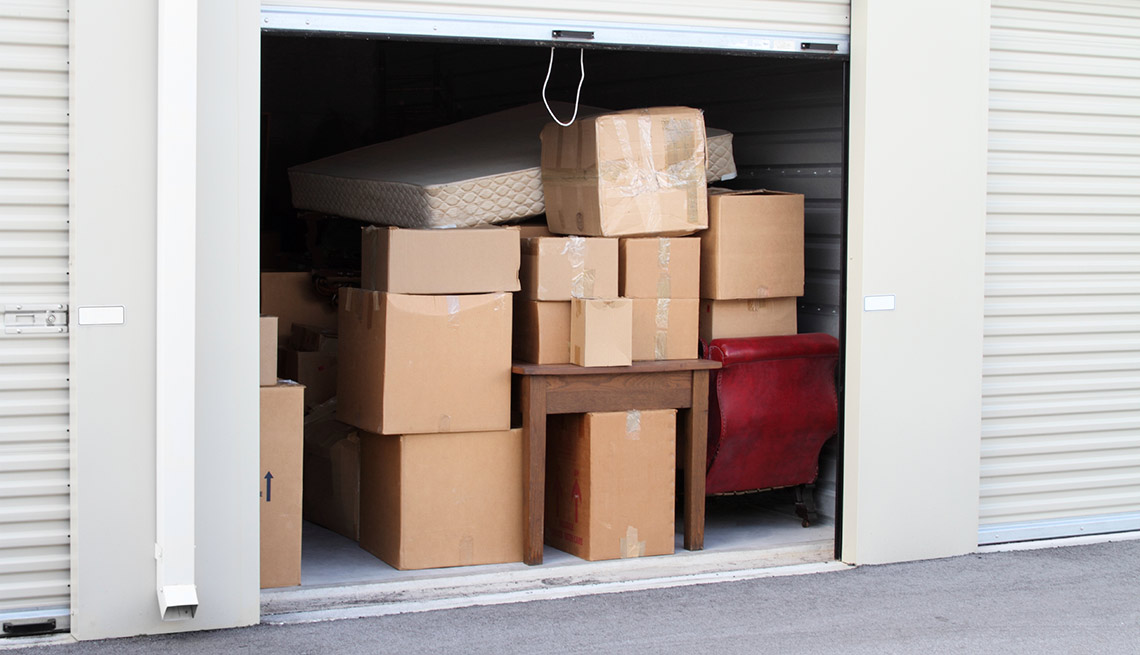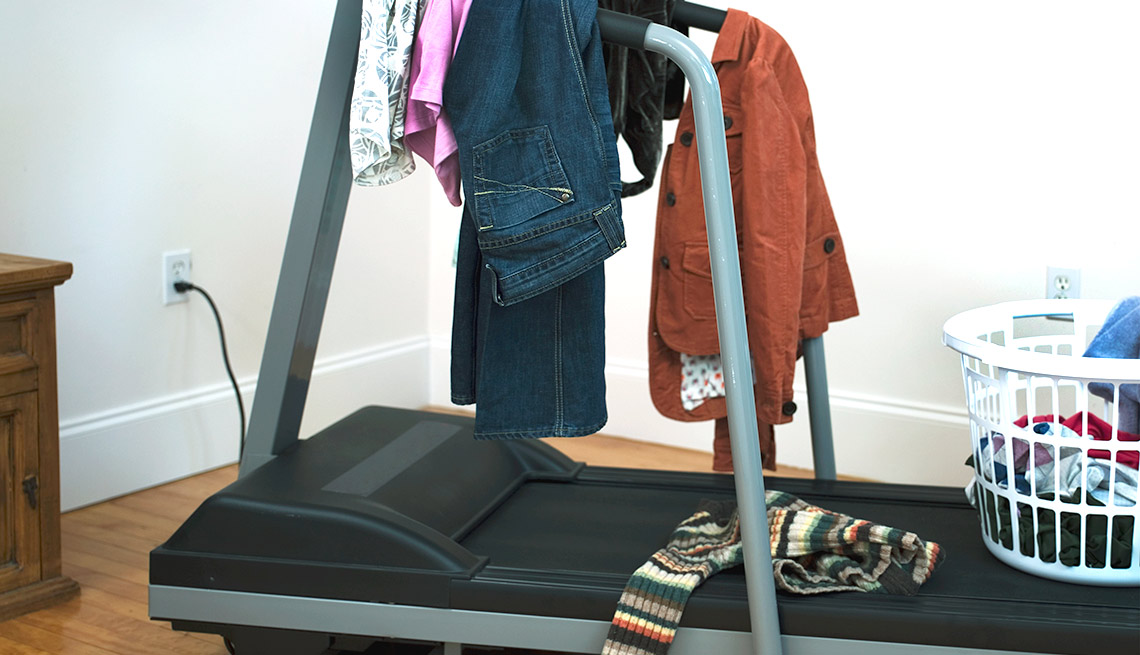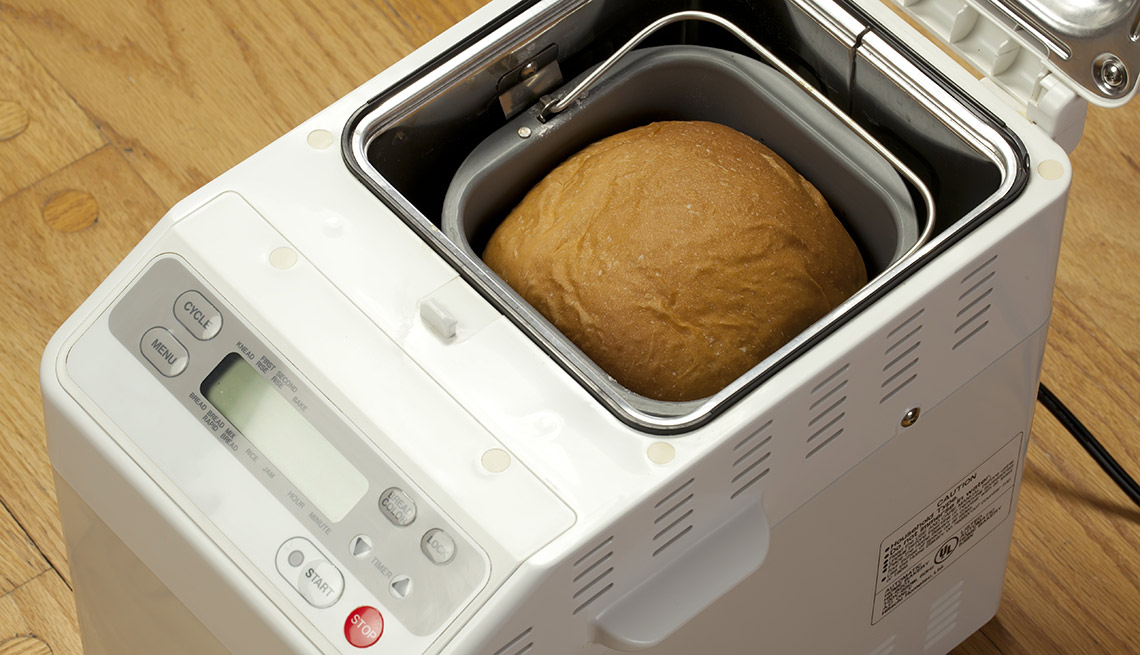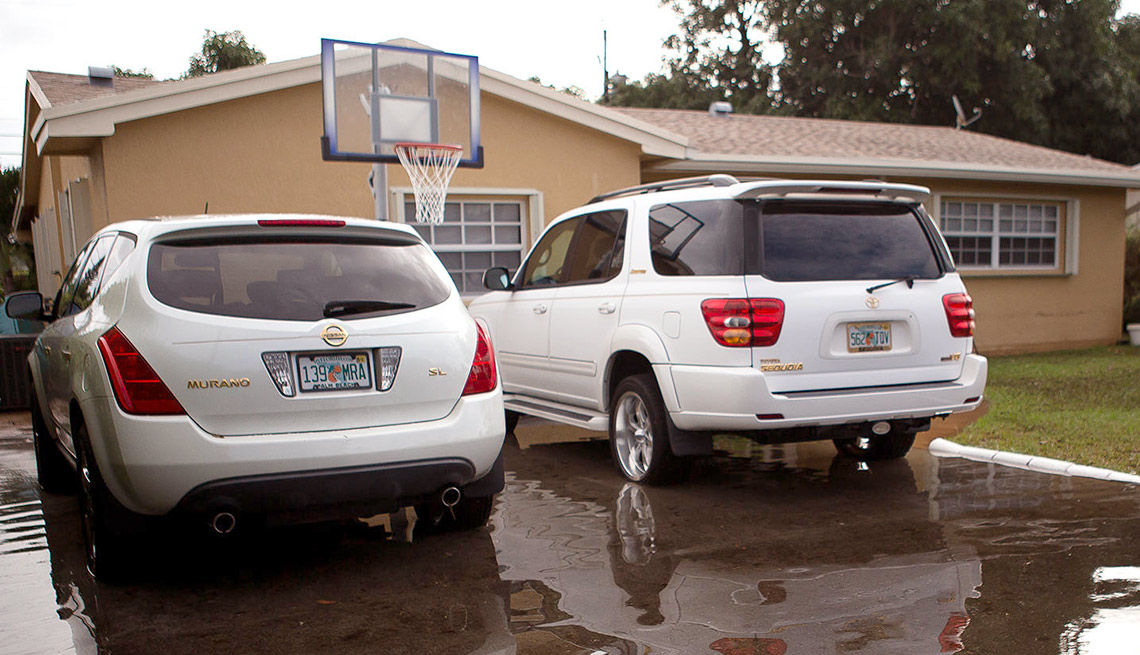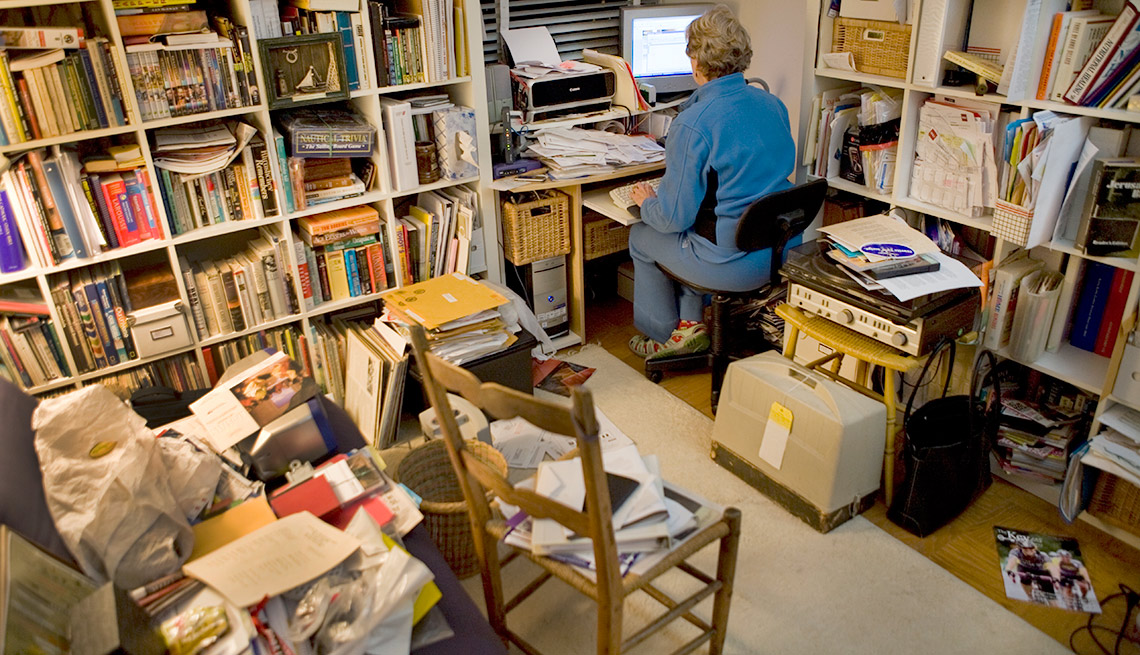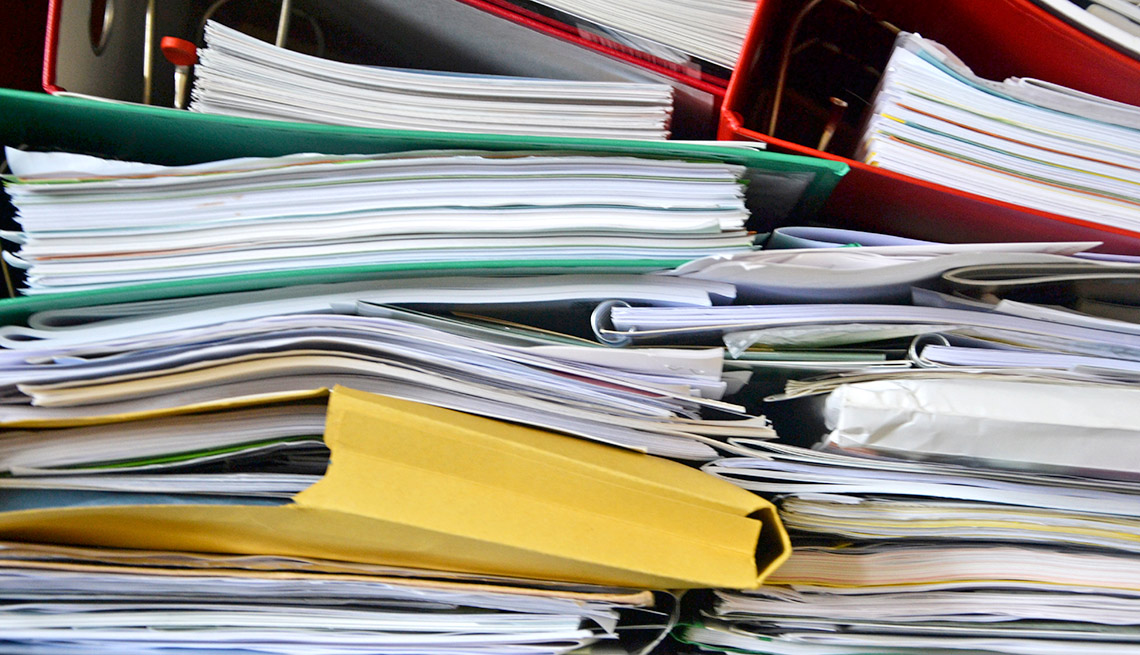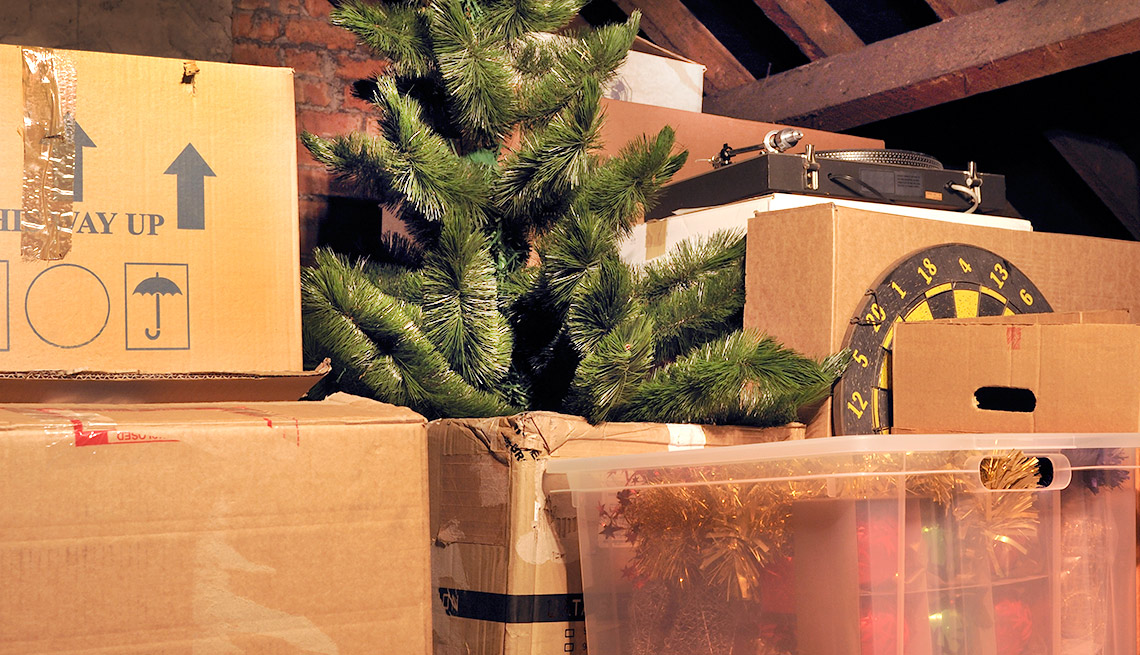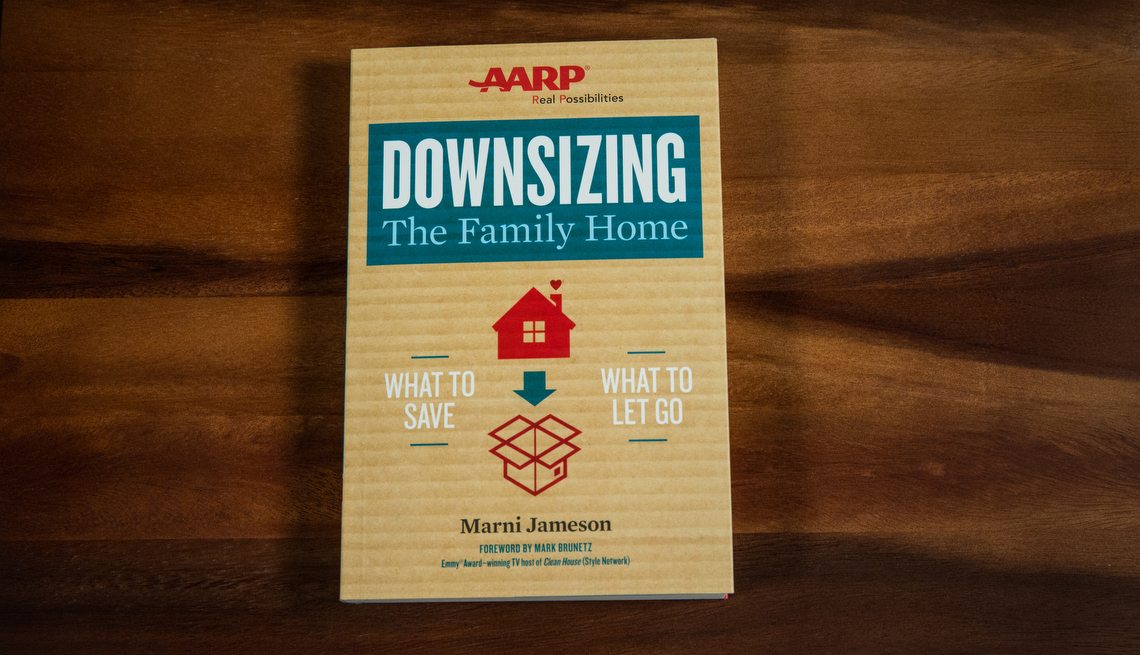Downsizing? Ditch These Items
Here's what to pitch to get organized and reclaim space
by Jeff Yeager, AARP, Updated December 24, 2020
- |
- Photos
-
- 1 of
PHOTO BY: Istock
The Big House
Consider making this decision as soon the kids are gone rather than when you're ready to retire. Even if your home is already paid for, there are still significant costs in owning more space than you really need, including taxes, utilities, insurance and repairs. Plus, it will force you to downsize other belongings, too. You'll also have an excuse for why the kids can't move back in with you later!
-
- 2 of
PHOTO BY: Istock
Debt
Over the course of a lifetime, the average American today will pay more than $250,000 in interest on all the money he or she borrows, according to Credit.com. Pay off debt as quickly as possible. Definitely pay it off before you retire. Live by this old-school rule: If you can't afford to pay for it now, you simply can't afford it.
-
- 3 of
PHOTO BY: Shutterstock
Clothes
If your wardrobe has outgrown your closet and dresser, start by purging enough pieces so that everything will fit. Get rid of unwanted clothing at yard sales or online, or by donating items to charity.
-
- 4 of
PHOTO BY: Istock
Anything in Off-Site Storage
According to the Self Storage Association, there are about 50,000 self-storage facilities in the U.S. That's more than five times the number of Starbucks! Vow to eliminate storage fees by getting rid of enough stuff so that all your possessions fit in your own home.
-
- 5 of
PHOTO BY: Joshua Dalsimer/Corbis
Exercise Equipment
If the exercise bike or treadmill in your bedroom has morphed into a permanent clothes rack, donate it to a local thrift store or charity.
-
- 6 of
PHOTO BY: shutterstock
Kitchen Appliances and Gadgets
Ask yourself: "When was the last time I plugged that in?" If it's been more than six months since you've used the waffle iron or bread maker, it's probably time to find that appliance a new home. While you're in the kitchen, eliminate unused culinary gadgets and nonmatching tableware.
-
- 7 of
AARP Offer: Protect your money, grow your nest egg
Take advantage of expert advice, tools and information to help you protect and build your future for your family.
-
- 8 of
PHOTO BY: ZUMA Press/Alamy
Car
Besides downsizing your home and eliminating debt, getting rid of one — or all — of your vehicles could result in the greatest savings. According to AAA, it currently costs an average of $8,558 annually to own and operate a vehicle in the U.S. if you factor in all the costs, including depreciation. If you're a two-car family, getting rid of one set of wheels might make sense once one or both partners are no longer working. You might be able to get by with public transportation or a car-share program, or at least downgrade to less-expensive vehicles. If you're planning to relocate in retirement, there are communities where owning a car may not be necessary.
-
- 9 of
PHOTO BY: Getty Images
Childhood Memorabilia
If your kids or other family members don't want keepsakes from their own childhood (or yours) now, they're not going to want them when you're gone. Hold on to a few precious, symbolic mementos — those that truly spark memories and joy — and digitize images of the other things.
-
- 10 of
PHOTO BY: Taylor S. Kennedy/Getty Images
Furniture
Filling — and too often, overfilling — a room with furniture is a common tendency. Doing so makes the room seem smaller and gives you more places to store and display more stuff. Start by eliminating a couple of pieces from a room and see how much more spacious it feels.
-
- 11 of
PHOTO BY: Istock
Books, Magazines, DVDs
Unless a book has sentimental value or you're going to read it again, put it back into circulation via a yard sale or thrift store so that others can enjoy it. Or donate it to your library, where you can always get free access to books, CDs and DVDs. You can store countless e-books (many are available for free) on an e-reader that's smaller than a single print volume, and you can easily digitize your music and movie collections.
-
- 12 of
PHOTO BY: Istock
Files
Consumer Reports advises organizing your important files into four categories: "papers that you need to keep for the calendar year or less; ones that can be destroyed when you no longer own the items they cover; tax records, which you should save for seven years; and papers to keep indefinitely." You can access copies of many documents (e.g., bills, bank statements, user manuals, etc.) via online accounts. Consider storing digitized documents on a Web-based storage service or an external drive.
-
- 13 of
PHOTO BY: Getty Images
Downsizing? Ditch these 10 items - Decorations
Decorations
While holiday decor has some sentimental value, consider getting rid of the decorations you haven't used in the past five years, particularly bulkier items such as outdoor decorations and holiday tableware you use just once a year.
-

